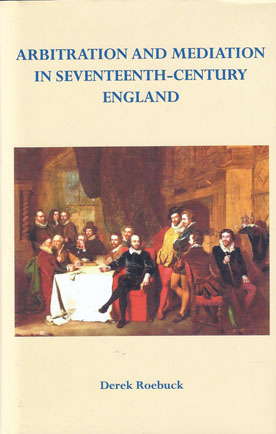
Despite plague, fire, political upheaval and religious strife, in the 17th century English people of all kinds used mediation and arbitration routinely to help resolve their differences.
Kings and poor widows were parties. Kings and yeomen arbitrated. Francis Bacon, Edward Coke, Samuel Pepys, Robert Hooke and James I himself all took what they called arbitrament for granted as the best way of resolving all kinds of disputes they could not manage themselves.
The redoubtable Lady Anne Clifford was exceptional; she successfully withstood the insistent demands of James I to arbitrate in her land dispute with her husband and family. Women appear as often as men in many of the primary sources and have a chapter to themselves.
There are five parts:-
The 17th century saw great changes in English life, but few and only towards its end in the ways in which parties managed their disputes by arbitrament, usually asking an even number of third parties, first to arrange a settlement as mediators and, if that failed, to adjudicate as arbitrators. Parties relied on bonds to ensure each other's performance of the submission and award.
But, as the century drew to its close, lawyers advised their clients to take advantage of the courts' offer to accept a claim and, with the parties' consent, to refer it to arbitration, with arbitrators appointed by the court. That process came to be called a rule of court and the Government established it by the Arbitration Act 1698.